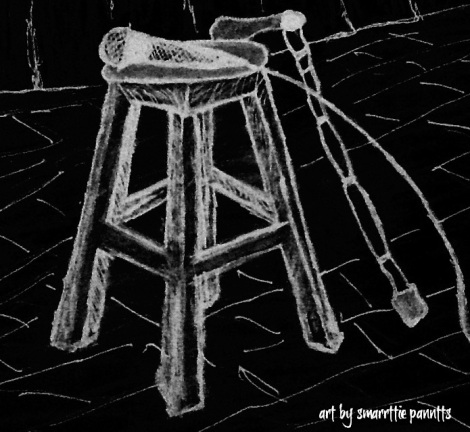Jonathan had an acute awareness of the brevity of life. My son rediscovered this particular essay demonstrating that very thing and was moved by it. Jonathan wrote it on his birthday in 2011.
Musings Upon Turning Sixty
I am a child of God
The heavens reverberate with a shudder of grief when I am in tears
The angels from a million pinnacles give a shout when I find joy
For I am part of a universal plan
A determining factor in His Almighty decision
Whether I fly by night or drive by day
All of heaven is hushed and brought to action
When I am in need …
This is a poem I wrote on a Greyhound bus when I was twenty years old, on my way to meet up with a friend who was in need. I had two packets of Zesta crackers, a can of Diet coke and exactly $1.25 in my wallet for other incidental expenses. I didn’t care. After all, I liked Zesta crackers. I also didn’t care that I had $1.25 in my pocket.
Truthfully, I still don’t.
I wake up this morning sixty years of age. My birthday
Sixty is significant.
First of all, you’re no longer in your fifties–that in-between season, in which you’re not quite an old codger yet, though you’re past many “studly” possibilities.
No, sixty is different.
It’s the gateway drug to Medicare.
There are sixty seconds in a minute, sixty minutes in an hour. Sixty is three twenties, six tens, four fifteens, twelve fives… Now I’m just being ridiculous.
The reason I shared the verse at the beginning of this essay is that I could have written it today and it would have been just as fresh and true.
I still believe it.
I still believe that I am a son of God–not in the sense that I must be careful handling my water glass, lest it gain alcoholic proportions, but a son of God because I am included in the mind of my Creator and Father.
Everybody in our generation is concerned about “liberal” and “conservative,” right and left–but honestly, my friends, I’ve always prayed for a straight, plain path and avoided the drastic turns based on society’s pressure to conform.
In the 1960’s, when I was teenager, it was posh to cast a jaundiced eye towards civil rights and social reform while rallying around the American flag regarding Vietnam. It just never made sense to me to go halfway around the world to kill off the people in a small country in the name of democracy when we hadn’t yet given full rights to all of our citizens.
In the 1970’s, it was all about partying and lavishing oneself with platitudes of perfection and dancing the night away. Since I knew I wasn’t perfect and wasn’t a very good dancer, I chose to work on my personality, principles and trying to practice what I preached.
In the 1980’s, while the religious community was becoming obsessed with social issues, I continued to expound upon the notion that since God does not look on the outward appearance buts looks on the heart, we should spend more time working on our own internals and not so much about our other people’s morality.
Likewise, in the 90’s and even coming into the 2000’s, I just could never sign on the dotted line” of the Contract with America. After all, who’s America were they talking about?
The reason for my choices?
It’s because I know how limited my faculties are, how fragile my talents and how weak my resolve.
The problem with self-esteem is that it so easily loses its steam–always having to be boiled up again. Truly, a waste of time, energy and talent, perpetuating self-involvement and little awareness of the needs of others.
Today I am sixty years old. How do I feel?
Starting with my feet–they feel about seventy-five.
My ankles are hangin’ in there at about fifty-two.
My knees are about ninety-one.
My hips maintain a really cool forty.
My waist? Well, let’s not go there.
My heart is a mystery, but certainly has more creaks than it used to.
My face has a myriad of ages, depending on how much sleep I get.
My eyes are a split vote–the right one an octogenarian, and the left one, still floating around thirty-five.
My emotions are daily cleansed so they’re like a newborn.
My soul is always attempting to be as old as God but as young as a child.
And my brain? Well, my brain is still twenty years old, riding on that bus, believing that God cares … about me.
Don’t be so concerned about the right and the left. Look at where you want to go–and steer your life straight ahead. Because after we’re gone, no one is going to discuss our faults, only our good points. If we don’t leave behind much of a record of righteousness, we probably won’t be mentioned at all. What I want people to remember is that I started out doing something and on the morning I passed, I was still doing it.
So let me call sixty a bookmark.
I have fewer chapters to write than those that have already been edited.
But that means I have the complete capability of going for a great twist in the end.







